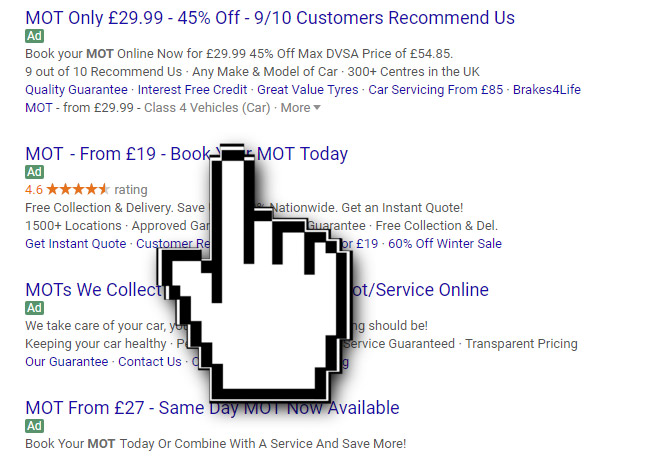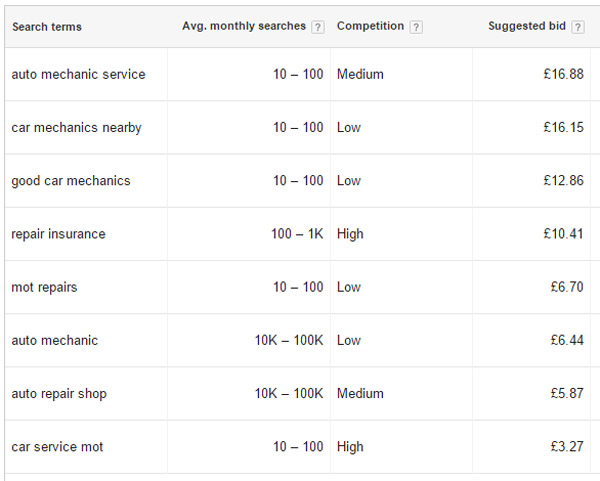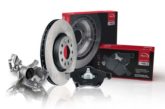PPC Protect explore the growing problem with click fraud when it comes to mechanics advertising their services online.
It’s no secret that a lot of mechanics use pay per click networks such as Google AdWords to advertise their services. But did you know that there is an increasing number of fraudulent clicks destroying businesses advertising efforts?
Known as “click fraud” this problem has been around since AdWords launched back in the early 2000’s but has only recently become a big problem. With so many businesses and advertisers using AdWords, almost no one is safe.
So just how much is click fraud costing you and your business? And what can you do to stop it?
Before we answer that, we first need to understand what click fraud is.

What is click fraud?
Pay per click networks such as Google AdWords follow a simple system. Advertisers bid against each other on keywords to determine who’s ad gets shown first for a given keyword. Whoever bids the most takes the number one spot, while the second highest bidder takes the number two spot.
Depending on the keyword these bids can range from just a few pence per click, up to many hundreds of pounds. In order to have a successful PPC campaign, you need to get the most out of every click.
Click fraud is the act of fraudulently clicking ads where the user has no intention of ever buying the advertiser’s services or product. Since the advertiser or business must pay for every click they receive, this is a huge waste of money. One or two fraudulent clicks a day might be bearable for most businesses, but when that number increases to five or more a day, it can have a devastating effect on your business.
It can even get to the point where PPC advertising isn’t profitable anymore and the business has to stop advertising. Without advertising to bring in new customers a business can experience little growth and fewer sales. As you can see, click fraud is a big problem and no industry is immune from it.
What are some of the most frauded keywords?
In the automotive industry, there have been increasing reports of click fraud for expensive keywords. Many unethical and malicious competitors actively target expensive keywords in order to cause financial loss to their competitors.
Here’s a picture from the official Google Keywords Planner tool that shows the price per click on certain keywords.

From looking at the list above, you can see just how expensive some keywords can be. The keyword “auto mechanic service” for example costs an eye-watering £16.88 per click! With keywords costing that much, you would require a conversion every few clicks or it wouldn’t be profitable. Throw in click fraud from your competitors into the mix, and that keyword could be costing you a lot of money.
What can you do to stop click fraud?
Now you have a good idea of what click fraud is and how it affects thousands of local businesses, you’re probably wondering what’s being done about it. Considering click fraud is still a problem today, clearly not enough is being done.
Google, the owner of AdWords, has a special quality control centre that tries to distinguish fraudulent clicks. Unfortunately, their click fraud detection system isn’t perfect, and many users still get charged for fraudulent clicks.
To combat the increase in click fraud, many third party companies such as PPC Protect have developed their own software to solve the problem.
Unlike Google’s system, PPC Protect actively monitors businesses adverts to detect suspicious clicking from users. If someone is regularly clicking on your advert, then the software will detect it and block the user from ever seeing them again. This stops them from costing you money while still letting everyone else see your adverts.
Combine this with their huge database of blacklisted IP addresses that are known for click fraud, and you’ll never have to worry about losing money again.
So how much is click fraud costing your business? Probably a lot. With no way of being able to see who has clicked your ads, literally anyone could be clicking the same ad over and over again. If you ever notice anything strange about your clicks in AdWords, then it’s time to do something about it and fight back the fraud.











